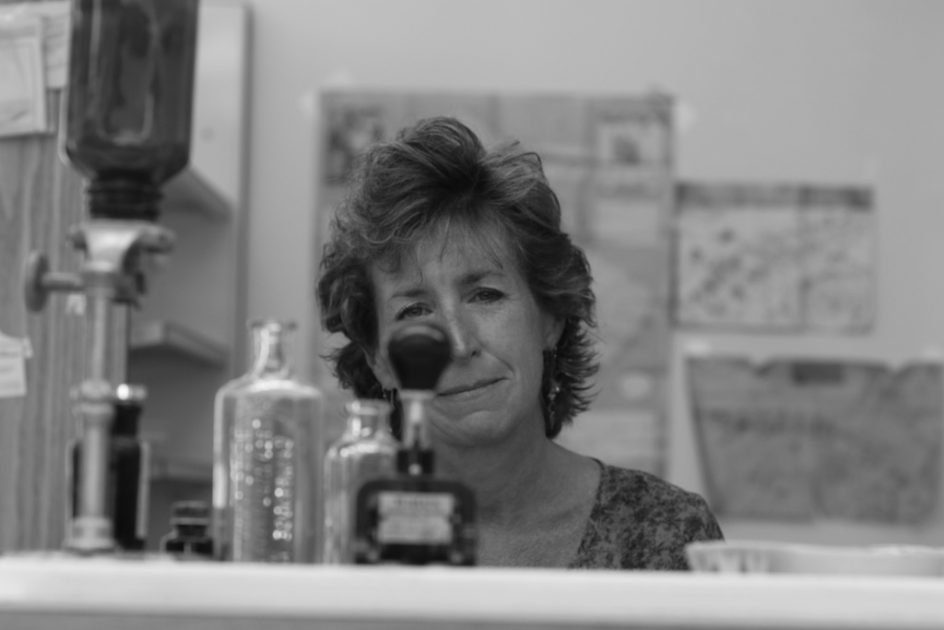
I went to see Bridget at O’Hearn’s Pharmacy, closed now for nearly a year. It was emotional for me, Bridget helped me so many times to navigate the health care system after I had my open heart surgery, she helped so many people in our town. It was an emotional visit for her also, I could tell.
I wanted to shoot her portrait for my portrait show at the Round House Cafe this September, and she agreed to meet me in the empty pharmacy, for so many years a busy center of our small town, a focal point of our community.
Bridget’s pharmacy is sorely missed, people there felt so known and she was so available and sympathetic. I followed her all over the store shooting a 100 pictures, but I love this shot, when she stood behind her counter, and where she held forth, worked the phones, made up the medications, dispensed guidance and advice.
In small towns like ours, people had callings, not jobs, and nothing is more revealing of that than the transition from small community pharmacies to monster chains who sell cigarettes right next to medicines. I had had to explain my circumstances to Bridget, she knew more about me than any of my doctors wanted to know.
Bridget comes from another time, when pharmacy was an art, when people have personal relationships with their pharmacist, when the walls were filled with Hallmark Cards, when people understood health insurance and pharmacists were their critical links to doctors and the health care system.
When I was suddenly checked out of the hospital where I had open heart surgery, I had a dozen prescriptions to fill and the chain stores were closed. I called Bridget at home, and she told me to stop by and drop them off at her house. Early the next morning, they were all waiting for me.
Bridget’s Pharmacy took in dry cleaning, sold gifts and jewelry and was a favored stop for Christmas presents. People in the town were almost fanatically loyal to her, but the cost and complexity of dealing with insurance companies and the government wore her down, as it has so many small businesses in rural communities.
People struggled to pay for my medicines, but I never knew anyone who was denied their medications because of money. There was always a way.
In our world, only the big can survive and rural communities have been stripped of their local, community-based institutions. Bridget and her pharmacy were a precious focal point of community, part of the heartbeat of our town.
It was good to see Bridget again, and to photograph here. Bridget is a person of great faith, she loves people, and that was one of the reasons she was such a great pharmacist, you always felt welcome there, known and cared for. It never seemed a bother or a burden for her to care for people, it always seemed a joy. That made it so much easier for everyone.
When people in my town got bad medical news, the first place they came was to Bridget, it was common to see Bridget huddle in a corner with someone, helping them wipe the tears from their eyes. And she helped them beyond, also, delivering medicine if it was an emergency, available day or night.
I was very happy to take her portrait, happier still to include her in my Portrait Show.
